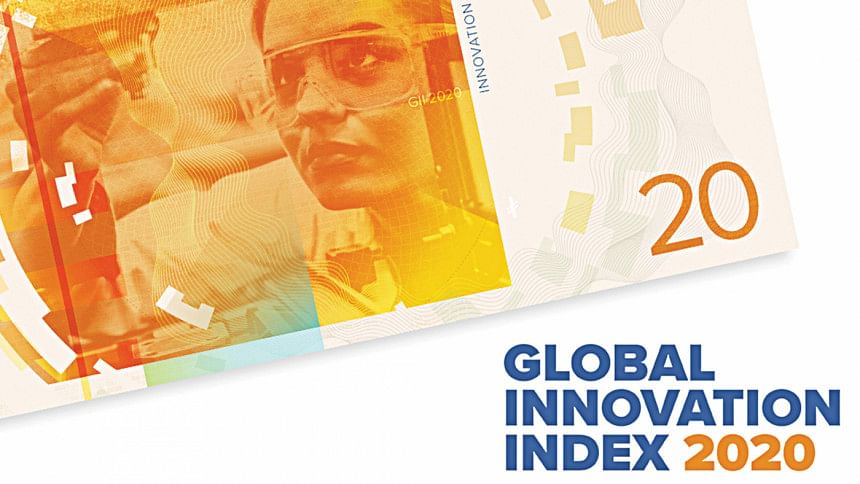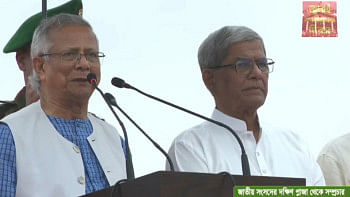Global Innovation Index 2020 and Bangladesh

World Intellectual Property Organisation (WIPO) has released Global Innovation Index (GII) on September 2, 2020 in which Bangladesh ranks 116th on overall innovation indicators among 131 economies. The GII assesses world economies based on 80 innovation indicators. As per the GII, performance of Bangladesh has been better in this year on innovation outputs than innovation inputs. It ranks119th in innovation inputs while ranks 114th in innovation outputs. Regrettably, the position of Bangladesh in aforesaid fields have been lower in compared to the last two years. Moreover, Bangladesh ranks 24th and 10th respectively among the 29 lower middle-income group economies and 10 economies in central and southern Asian countries. The GII, 2020 demonstrates that Bangladesh has performed below expectation on relationship between innovation and development. There are seven GII pillars of assessment, namely, institution, human capital and research, infrastructure, market sophistication, business sophistication, knowledge and technology outputs, and creative outputs. As far as GII pillars are concerned, Bangladesh performed below average in all areas compared to other economies of central and southern Asian countries, and only performed above average on infrastructure and rest of the sectors remain in below average as compared to other lower middle-income group economies.
Some notable sub-areas among the seven pillars of GII may be relevant to depict the scenario of Bangladesh. In expenditure of education as per GDP our rank is 115th while in university and industry collaboration our position is 121th. In terms of intellectual property issues such as in knowledge absorption category- IP payment as per % of total trade is 106, in knowledge creation-patent by origin is 114 and knowledge diffusion-IP receipts as per % of total trade is 103. In the fields of human capital and research, such as researchers' contribution and QS University ranking, position of Bangladesh is very deplorable. The performance of Bangladesh on the various areas of creative outputs, namely in intangible assets- trademarks, industrial designs, global branding value, etc. is overall satisfactory. As Bangladesh has not joined in the PCT system, thus, we do not have any score thereof.
It is observed that despite the noticeable progress in many areas of Bangladesh, particularly in ICT sectors, economic indicators and GDP, the overall condition of innovations and creativity has not been up to the mark. Bangladesh needs to revisit and assess why its position remains constantly poor in GII during last three years. In general, our university education is not practical goals oriented, it lacks laboratories, infrastructures, funds and other academic amenities which in turn do not encourage creativity and innovations. Further, we have almost non-existent collaborations between the industries and universities. There should be central or individual and/or both IP policies for universities of Bangladesh which would clearly design and aim at encouraging creativity and innovation. Moreover, national IP academy should be established for disseminating IP education and training. It will transform the human capital, knowledge generation and at the end generate creativity and innovation. Stable governance, policy stability, coherent IP policies are also needed to improve the overall innovation indicators. Intellectual property office of Bangladesh (DPDT) should adopt the initiatives to increase awareness on various issues of IP in Bangladesh and increase filing and registration of industrial property rights in Bangladesh. Bangladesh should also join to the PCT system for registration of patents and Madrid system for registration of trademarks. This will, overall, help to increase the filing and registration of patents and trademarks from domestic and foreign origins. The Global Innovation Index does not itself generate any new data set for the assessment rather relies on the available data in the relevant fields. Thus, the concerned government institutions of Bangladesh need to take special consideration to make relevant data available. The analysis of Bangladeshi data of last three years and rank thereof in GII, indicate the re-use of similar data set. Perhaps, this is one of the reasons why position of Bangladesh continues to remain poor. There should be coordination and collaboration among the relevant government agencies of Bangladesh, such as prime ministers' office, ICT division, ministry of industries, other relevant ministries and IP office of Bangladesh (DPDT). Intellectual property office of Bangladesh (DPDT) may take lead in coordinating among the relevant institutions to prepare Bangladesh for the next GII assessment. Overall, Bangladesh should particularly pay attention to improve its position in the GII because it may demonstrate, inter alia, image of the country in relation to innovation and may provide a signal to foreign investors.
The writer is Advocate, Supreme Court of Bangladesh, currently pursuing LL.M. in IP and Competition Law at MIPLC, Germany.

 For all latest news, follow The Daily Star's Google News channel.
For all latest news, follow The Daily Star's Google News channel. 



Comments